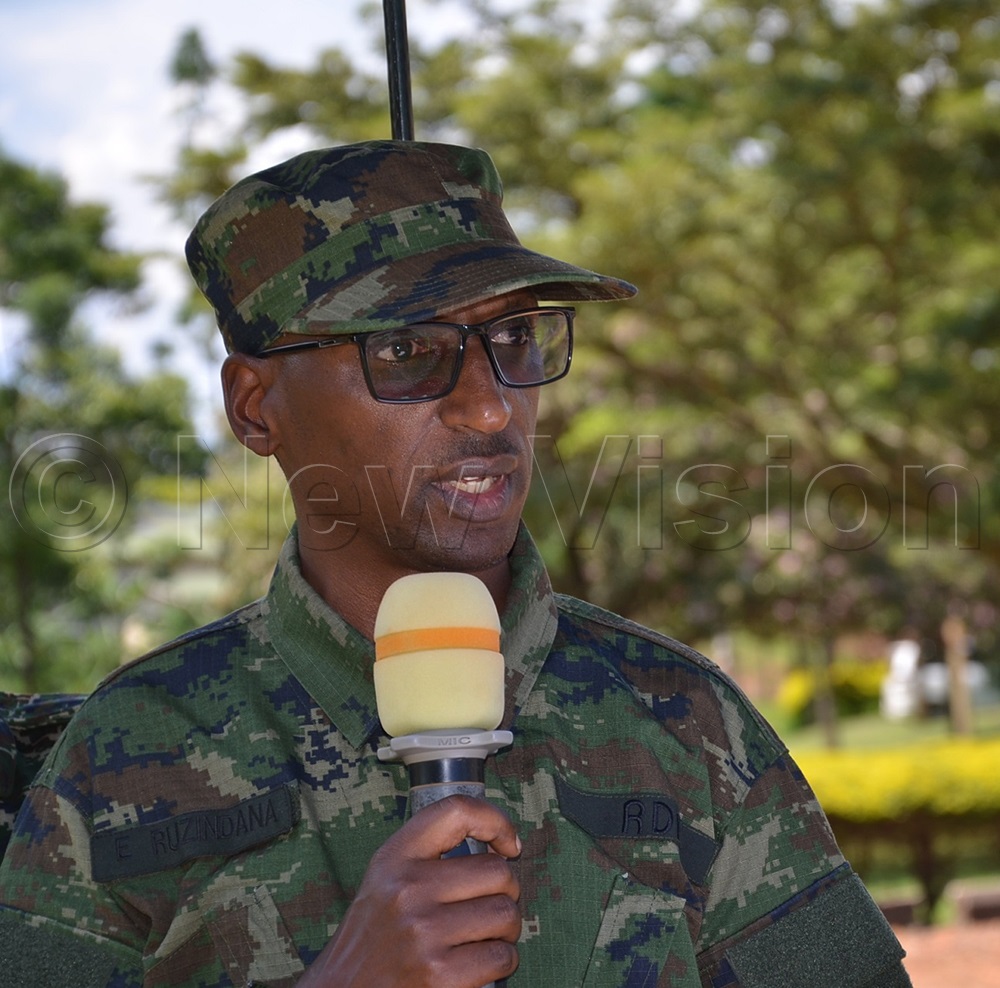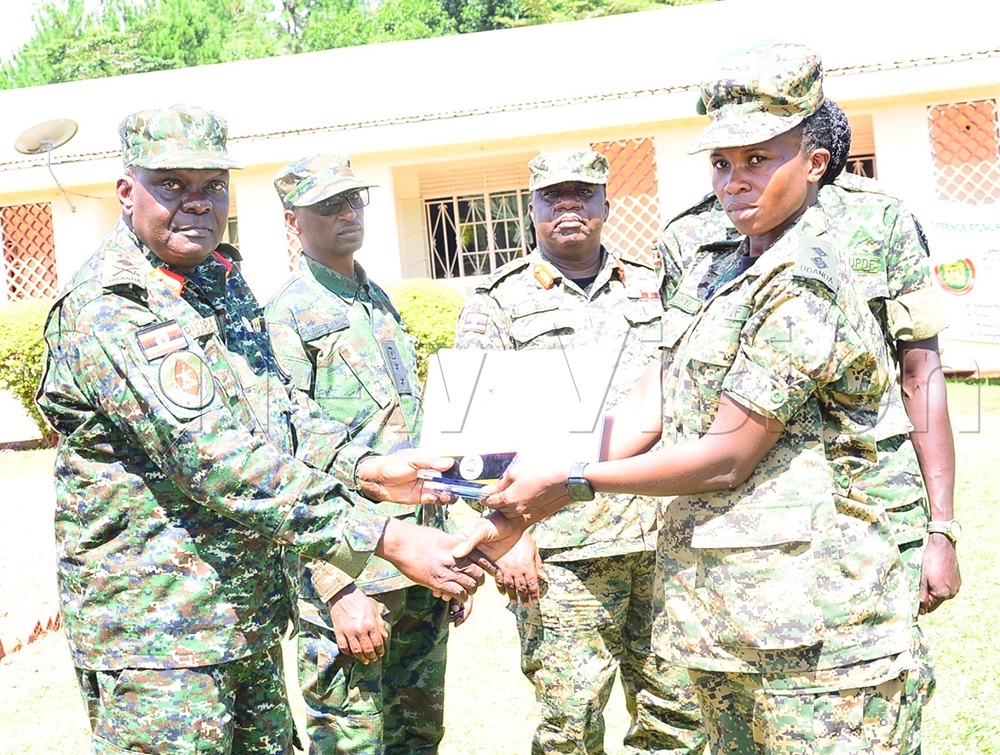Rwanda hails Uganda for enormous military opportunities
Ruzindana stated that the demand for similar training was high and, as RDF, they were still looking forward to the next available opportunity to send more officers.
Ruzindana (seated 5th left), Karugaba and other officers with the 4 RDF graduands after their pass out at the COLE in Magamaga barracks, Mayuge district on Wednesday. (Photo by Jackie Nambogga)
_________________
Rwandan Defence Attache to Uganda, Col Emmanuel Ruzindana, has described Uganda as a great place where they have enjoyed training and professionalising their soldiers.
He credited the Uganda People’s Defence Forces (UPDF) for the joint training opportunities accorded to the various allies, including Rwanda, which he said were significant to the individual student careers in their professional journey and their countries at large.
Col Emmanuel Ruzindana, Rwandan defence attache during a pass out at Magamaga barracks in Mayuge where he praised Uganda as a great place of their military trainees on Wednesday. (Photo by Jackie Nambogga)
Ruzindana was speaking at the 13th pass out of 107 army officers who completed a 19-week rigorous training course in two different disciplines at the College of Logistics and Engineering (COLE) located at the Magamaga army barracks in Mayuge district on Wednesday.
Four of these were drawn from the Rwanda Defence Force (RDF), 5 from the Central Africa Republic (CAR), with others from different UPDF units who took part in basic medical and arms management courses.
So far, Ruzindana said COLE alone had trained 27 RDF soldiers, which was a great stride towards professionalising their armed force.
Ruzindana stated that the demand for similar training was high and, as RDF, they were still looking forward to the next available opportunity to send more officers.
Meanwhile, Brig. Gen. Godwin Karugaba, UPDF’s Joint Staff-Logistics, who was the chief guest, commended Rwanda and CAR for entrusting UPDF with such joint trainings, saying they were determined to be a centre of excellence.
He said this was the spirit of Uganda’s manifesto of realising Pan Africanism, unity, and democracy by remaining peaceful for stability, prosperity, and to spur economic development.
As UPDF, Karugaba said they were in line with fulfilling the mandate of joint trainings, which is a good partnership, as without security, there wouldn’t be development, and without development, there wouldn’t be security.
“We need to promote Pan-Africanism by remaining peaceful for economic development to thrive so that when we have industries, we are able to create jobs and create markets with other nations, which has already been attained,” he said.
The course
Col David Agaba, the outgoing college commandant, outlined the aims of the two courses.
The medical logistics management course was to produce professional officers capable of sustaining the force both in peace and war times.
That of a basic arms management course aimed at enabling students to develop capabilities of foreseeing the arms and ammunition units in the field to meet the required operational capability and readiness.
Agaba explained that this was in line with the efforts of the UPDF leadership in each field of professionalising and capacity building of the army to attain an efficient and effective force.

Col David Agaba, the outgoing commandant of the COLE at Magamaga barracks in Mayuge said 4 students with two each failed the two courses. (Photo by Jackie Nambogga)
He said the medical course’s main objective was to produce capable professionals in medical supply management, medical logistics managers, and technicians for equipment support in maintenance and repair, as well as advisors on medical sustainment in defence forces.
While the arms management course objective was to produce professional managers in arms, ammunition, and explosive storage.
He said they needed to have personnel capable of equipping armouries with physical security and also carrying out stockpile management.
The course modules of the medical students included pharmaceuticals, fundamentals of medical stores, medical and military logistics, healthy waste management, as well as military health services.

Lt Amiru Kiiza receiving an award from Karugaba as best student in the basic medical logistics management course, as Agaba (L) and other officers looked on. (Photo by Jackie Nambogga)

Karugaba (L) flanked by Ruzindana and others while awarding a gift and certificate to Lt Harriet Nabirye who was the overall student in basic medical logistics management course. (Photo by Jackie Nambogga)
They also covered an overview of United Nations medical logistics, fundamentals of procurement, material, equipment, including stores and stock management.
Being logisticians, Agaba said the medical students also went through the fundamentals of arms and ammunition alongside logistic organisation and responsibilities, transport, and movement management.
Under the growing digital era, trainees are automating logistics on top of covering hazardous material management with some audio in the general military courses like service writing, radio communications, service law, and armed conflict.
On the other hand, the arms logistics course comprised management of ammunition and explosives, arms and light weight, general stores, inventory, including weapon maintenance and accounting, among others.
However, 4 students with two from each course, failed.